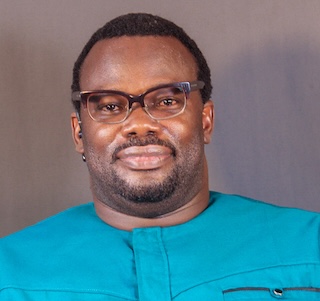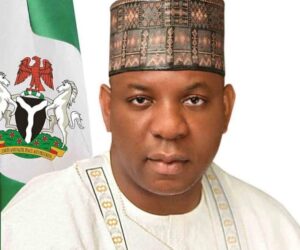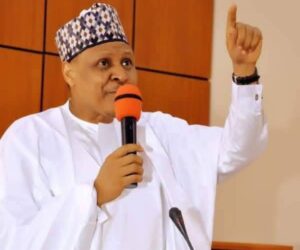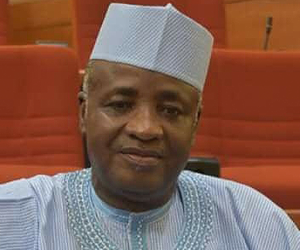
Honouring Falola ultimately is the affirmation of the power of scholarship to shape the present, preserve cultural memory, and pave the way for the future. At a time when many of our universities across Africa are still struggling to find a renewed purpose, this serves as a reminder that a university’s most precious resource is not its infrastructure or policies, but the minds it nurtures and the intellectual legacies it preserves. In this way, the conference does both philosophical and political work.
To celebrate a scholar is not simply the recognition of the tick of a clock; it is an occasion for introspection on the institutional, intellectual, and cultural histories that individual represents, as well as those that have shaped them over the years. That Lead City University (LCU), Ibadan, is marking the 73rd birthday of Professor Toyin Falola with a conference is a celebration on many symbolic and material levels. It is a recognition of one of Africa’s finest historians, and it is an acknowledgment of the production of knowledge as the sine qua non of the Nigerian academy. It is also part of the processes of reshaping how African universities imagine and realise their intellectual goals. This short essay will address the significance of this event from four angles: Falola’s contribution to the world of learning, the history of LCU, the politics of academic recognition in Nigeria, and the role of conferences in the conservation and expansion of our intellectual genealogies.
Falola’s Intellectual Legacy: A Pan-African Archive of Ideas
Toyin Falola’s influence spans African history, African diaspora studies, Yoruba epistemologies, African nationalism, African development studies, African cultural studies, and African futures. The voluminous nature of his productivity — hundreds of books, thousands of essays, the training of hundreds of scholars, and the building of global networks of research, intellectual production, and mentorship — has made him one of the most productive, influential, and transformational African intellectuals in the 20th and 21st centuries.
Celebrating Falola at 73 is, therefore, not just the celebration of a person but the celebration of an intellectual ethos. As a historian of Africa, he places African agency, ideas, voices, and stories at the centre of global intellectual conversations. As a theorist of African futures, he foregrounds the roles of the university, indigenous communities, language, and cultural memory in determining developmental possibilities. As a Yoruba intellectual, he continually draws on the rich well of Yoruba cosmologies to re-imagine global conversations about being, morality, creativity, and community. A conference in his honour is therefore an acknowledgment of a living archive — one that connects the worlds of past Africans, their present struggles, and future aspirations. The significance, thus, lies not only in celebrating Falola but in asserting the continuing value of African intellectual leadership within global academia.
Lead City University and the Symbolism of Institutional Recognition
The decision of Lead City University to celebrate Falola must also be understood as an institutional statement. A young and emerging private university in a country in which public universities of the first generation (such as Ibadan, Ife, Zaria, Nsukka and Lagos, among others) have largely set the terms of reference for the sector, is stating three related things: first, that it is a serious and no-nonsense university by choosing to honour a scholar in the global league, and it therefore locates itself in the cohort of institutions that have, over the years, used such recognition of intellectualism to signal their epistemic seriousness and global status.
Second, the decision to mark Falola’s scholarly and intellectual prowess is also an indication of LCU’s choice to self-identify with the intellectual history that Falola represents and personifies. Falola is not just an intellectual; he is also a proud symbol of a more confident African intellectual presence in the world’s epistemic order. By choosing to honour Falola, LCU is signalling its desire to align with him and be identified by association with him.
Falola’s performance of moral presence and authority within the academy, as in his personal example of mentorship and friendship, his interventions in public debates, his reformist vision of the African university, and the embodied wisdom he exudes, positions him as a scholar whose recognition by a given institution accrues moral significance. By extension, LCU’s decision to honour him in this way is an act that is necessarily implicated in the politics of symbolic capital…
The third message is in the performance of such an event: by hosting a conference to honour a globally prominent professor, LCU is also staging its own relevance and sophistication in the national and international space, by showing that it has the wherewithal to bring people together, to frame national and public debates, to have a voice and platform on which to say, do and present things. The institutional and the personal, then, are thus related in a process of symbolic mutual referencing. In this, the celebration becomes as much an occasion for LCU to define itself as it is to define Falola. Recognition in the Nigerian academic culture is never neutral. It emerges within complex historical, political, and generational dynamics. Honouring Falola at 73 reflects several symbolic shifts:
a. A celebration of intellectual labour in a challenging environment
Nigeria’s universities are characterised by underfunding, infrastructural decay, brain drain, and declining morale. Celebrating a scholar who has flourished in such conditions worldwide is reclaiming the value of intellectual work.
b. A handshake between generations
Falola is part of a generation of scholars nurtured during a halcyon period in Nigerian universities, when intellectual creativity flourished in the 1970s and early 1980s. Contemporary institutions are unable to produce anything like this. Honouring him is a handshake between generations – a moment of memory and an act of hope. The politics of moral authority
Falola’s performance of moral presence and authority within the academy, as in his personal example of mentorship and friendship, his interventions in public debates, his reformist vision of the African university, and the embodied wisdom he exudes, positions him as a scholar whose recognition by a given institution accrues moral significance. By extension, LCU’s decision to honour him in this way is an act that is necessarily implicated in the politics of symbolic capital, one that seeks to identify with Falola’s moral capital further to promote the moral authority of the institution itself.
c. Preservation and advancement of the Humanities
Falola highlights the inescapable and significant role of various disciplines in the humanities. Although a Historian of global repute, Falola’s boundless epistemic versatility and understanding of core disciplines of the Humanities to analyse existential challenges in contemporary society is unparalleled. The conference draws on this symbol for its theme.
d. Engagement and promotion of interdisciplinary studies in Humanities, Social Science, and STEM
Falola’s scholarship represents a multidisciplinary approach as it taps into one or more perspectives and intersections between disciplines in the Arts/Humanities, Social Sciences, and STEM. A considerable portion of his published output celebrates the analysis of complex and interconnected epistemic intersections, and the proposed conference will exemplify this.
The decision of Lead City University to honour Toyin Falola, who will be 73 on 1 January, 2026, with a conference and subsequently publish the expert’s well-researched works, is an intersection of the histories of ideas, the institution’s aspirations, and the politics of culture. It is a tribute to a scholar whose work has become a foundational part of a lineage of African knowledge…
Constructing a Living Epistemic Canon
Falola is a living epistemic canon, and Africa’s most distinguished scholar of the humanities. Conferences perform an essential cultural work in academic circles. They do not merely honour an individual; they create discursive spaces in which ideas are assessed, developed, and canonised. A Falola conference becomes a site for scholars to map his intellectual genealogy, younger scholars to situate their own work vis-à-vis his theoretical approaches, the university to project new research areas and trends born from his intellectual production, and the discipline of African Studies to reassert its own constantly redefining identity
A living epistemic canon has emerged. This living canon simultaneously positions Falola as a referent and the event, a moment of knowledge production and creation. Panel discussions, keynote lectures, and intellectual debates rewrite the parameters of African historiography and cultural studies. The conference becomes a moment of collective intellectual rejuvenation. The decision of Lead City University to honour Toyin Falola, who will be 73 on 1 January, 2026, with a conference and subsequently publish the expert’s well-researched works, is an intersection of the histories of ideas, the institution’s aspirations, and the politics of culture. It is a tribute to a scholar whose work has become a foundational part of a lineage of African knowledge; it is an effort to project the university’s academic brand; it is a recognition of the politics of excellence; and it is the making of a new, yet still-evolving canon of ideas for posterity.
Honouring Falola ultimately is the affirmation of the power of scholarship to shape the present, preserve cultural memory, and pave the way for the future. At a time when many of our universities across Africa are still struggling to find a renewed purpose, this serves as a reminder that a university’s most precious resource is not its infrastructure or policies, but the minds it nurtures and the intellectual legacies it preserves. In this way, the conference does both philosophical and political work.
I consider it a privilege to have been chosen to chair the Organizing Committee in honor of this extraordinary figure.
Samson O. Ijaola is the Head of Department of Religious Studies, Lead City University, Ibadan.










